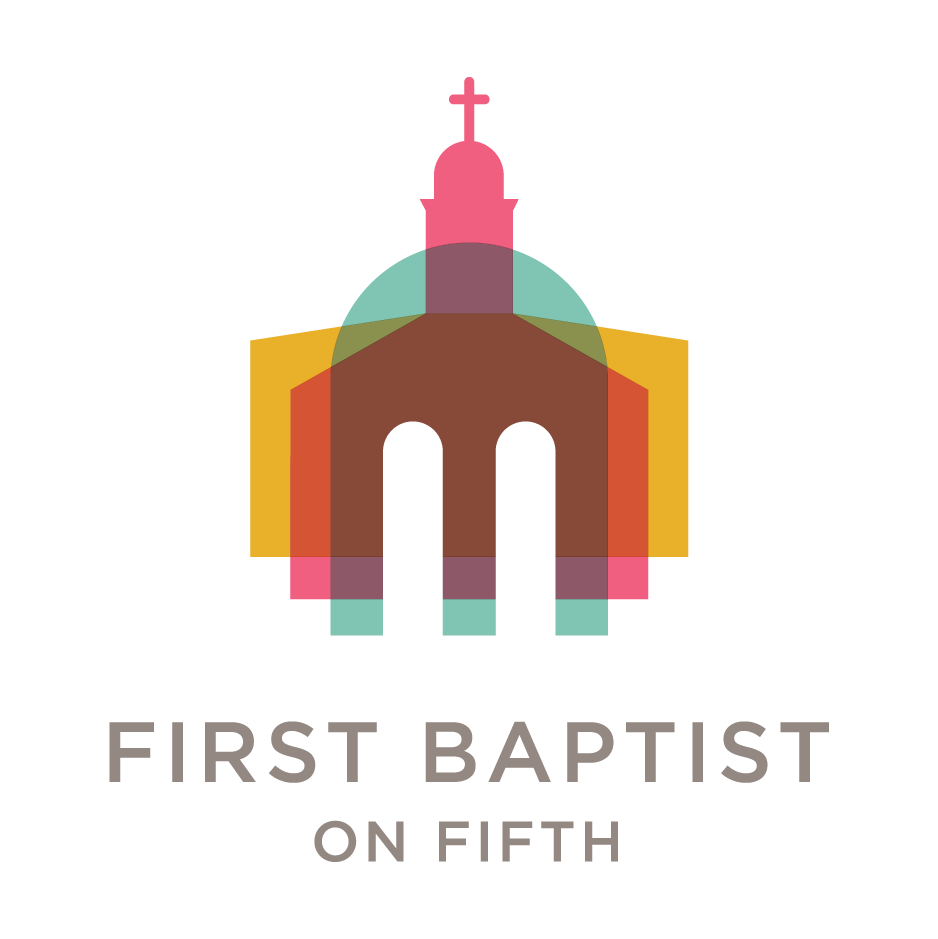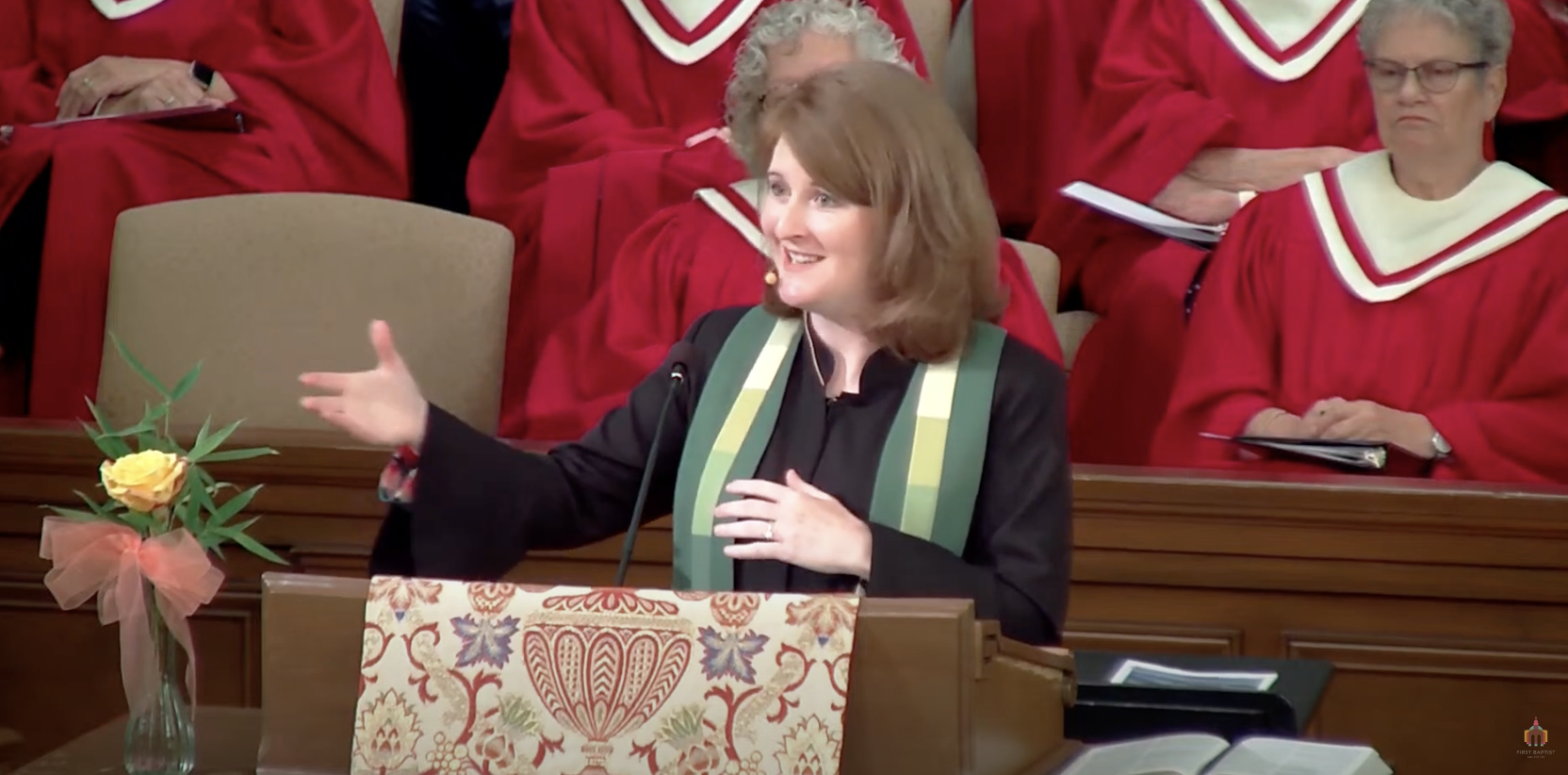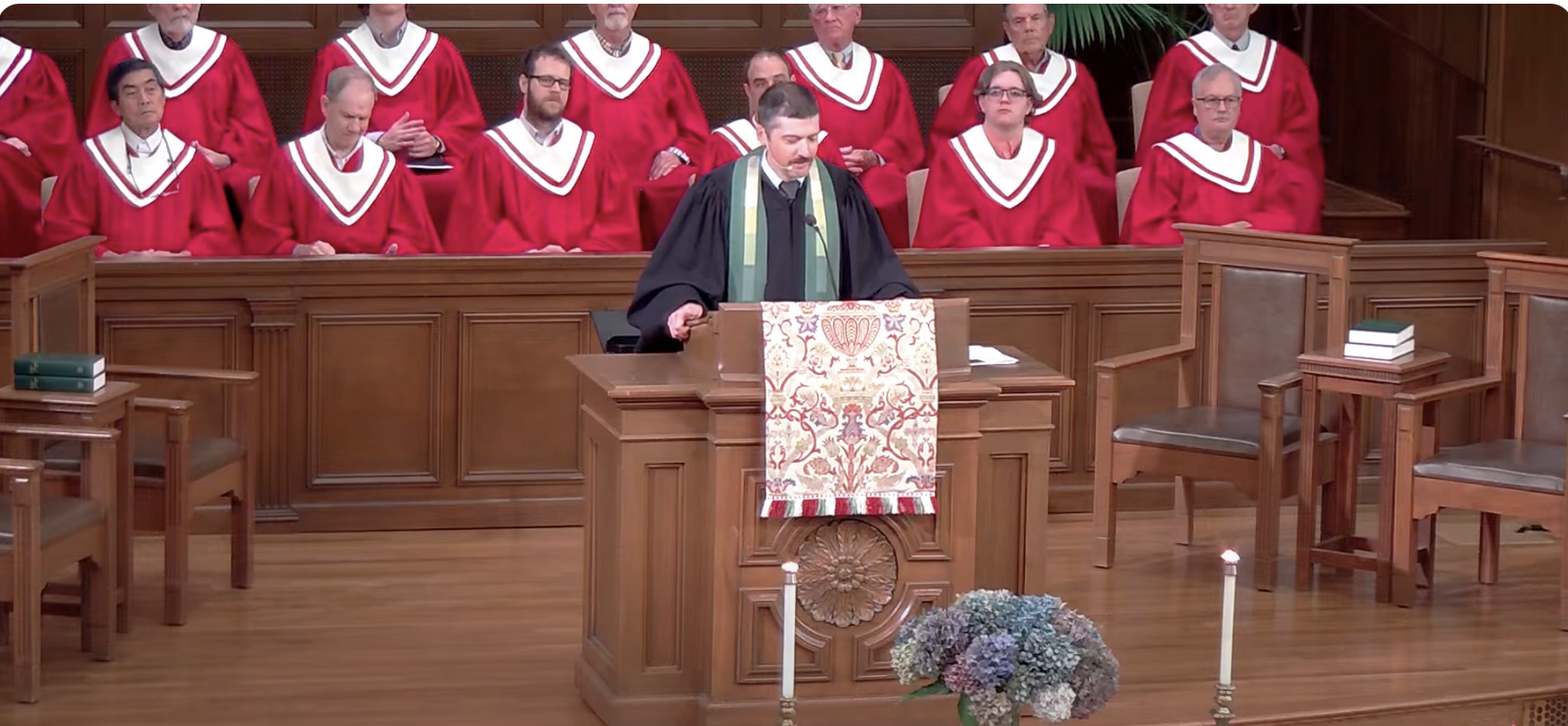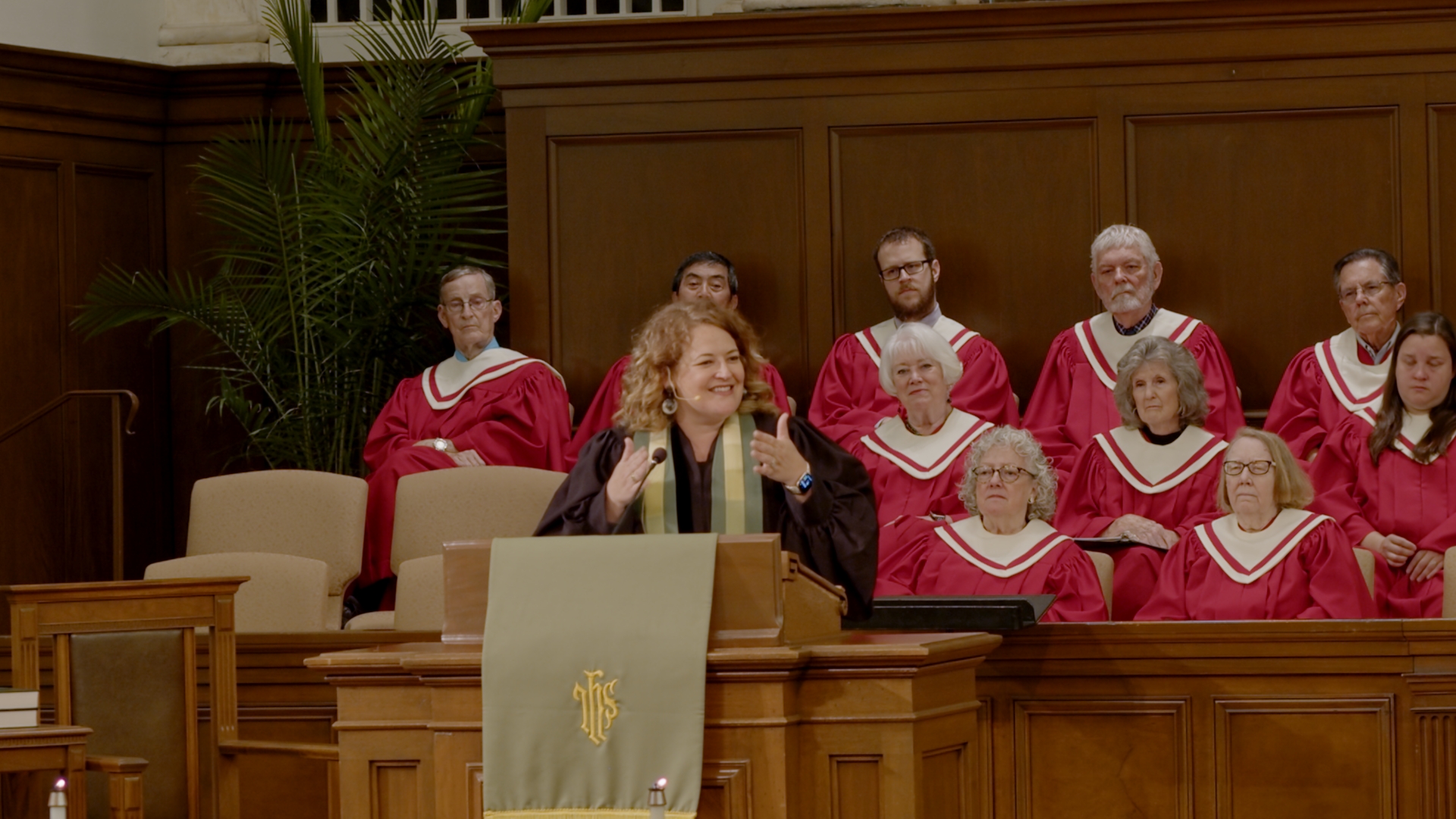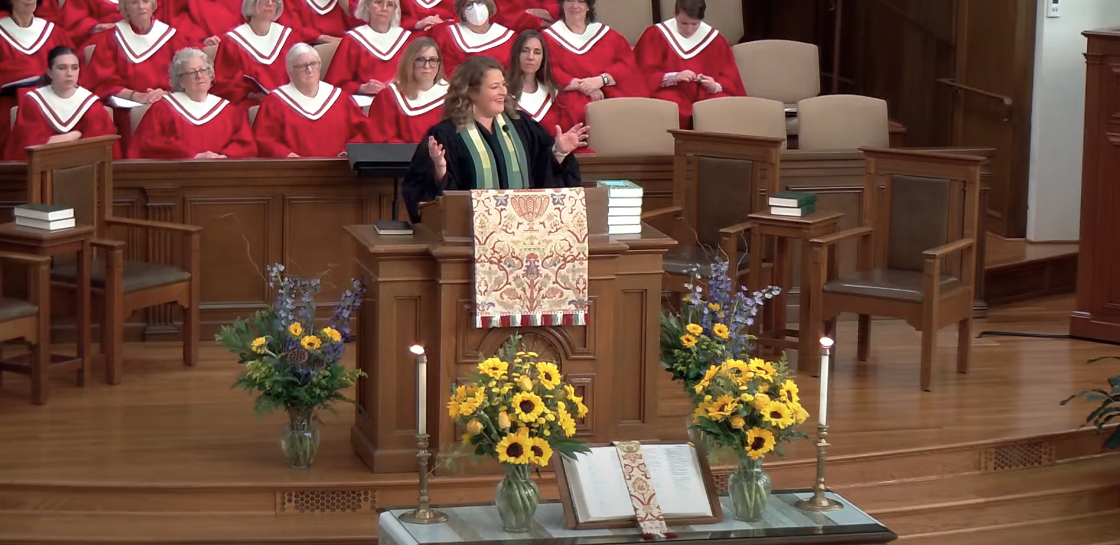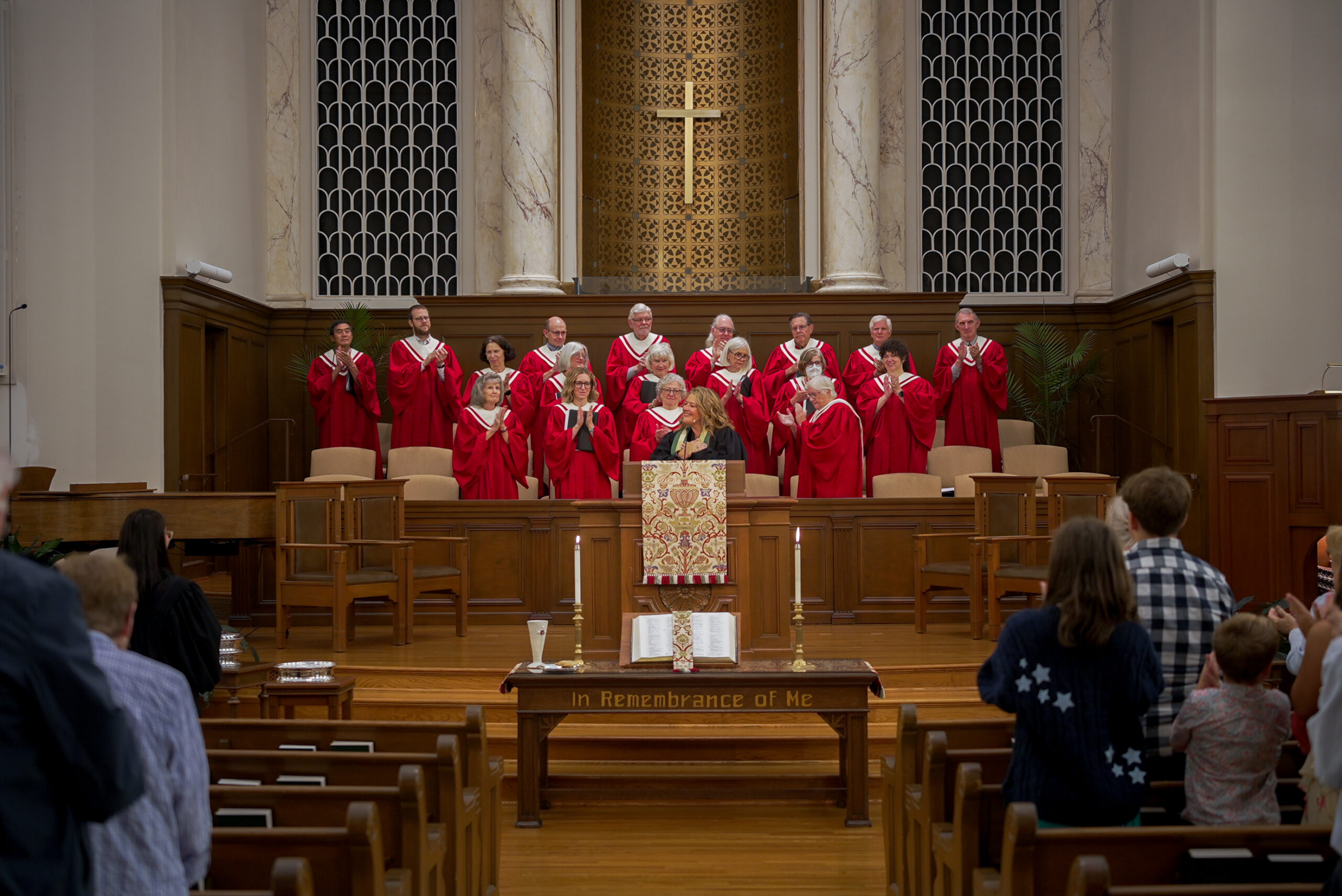I.When the Russian-Finnish border was being redrawn, the old story goes, a farmer was told that the boundary line passed right through the middle of his land. The authorities gave him the option – would he want his land to belong to Russia or Finland? The farmer promised to give it thought, and after several weeks he announced: he wanted to live in Finland.
It was no surprise, then, that a host of Russian officials, incensed by his decision, came to his farm with all the reasons why he’d made the wrong decision and how much better his land would be if it were Russian. The man heard them out and said, “I’m in complete agreement with everything you say. In fact, it’s always been my desire to live in Mother Russia. But at my age, I simply won’t be able to survive another of those Russian winters.”1 Boundaries are all relative, aren’t they?
II.Last Sunday, we began a sermon series called “Defying Norms,” that tracks the early days of Jesus’ disruptive yet transformative ministry as told by the Gospel of Mark. We left off with a story of how Jesus was challenging the religious leaders and their hold on the sabbath status quo. Jesus is back on the move, followed by multitudes who flocked to him with curiosity and a hunger for the good news he proclaimed. These crowds were so hungry for good news, so desperate to be near to this One who proclaimed it. Mark tells us they came around Jesus so tightly, that he and his disciples could hardly lift a hand to their mouths to eat.
“Then Jesus went home,” the story begins. Jesus’ family had gotten wind of what people had been saying about him. His mother and brothers had heard about those crowds, the healing, the grumbling of the religious leaders who called Jesus “crazy,” and “out of his mind.” So when they went to Jesus to, as Mark tells us, “restrain him,” you have to wonder what motivated them in that moment. Were they embarrassed by the disruption he was causing? Were they experiencing isolation from their community because of Jesus’ actions? Were they afraid for him, wanting to protect him from the pressing crowds and the prickly scribes? Those prickly scribes were the ones questioning him at every turn in this story, and here their anger caused them to draw a line. Were they envious of his authority? Were they threatened by the claims he made, or worried at what his life would mean for theirs? To his family and his critics, Jesus was clear: do not quell the movement of the Holy Spirit. And whoever does God’s will is my family.
III.This story has me thinking about boundaries. Now I’m not talking about the healthy parameters we put around ourselves and our lives so that people or systems who are harmful or toxic or even abusive can harm us. Rather, I’m speaking of the boundaries that create definition among people, those that indicate the reach of one’s circle. For in this story, we hear Jesus pressing boundaries of power, boundaries of identity, boundaries of family, all of which have a way of destabilizing the status quo and disrupting the way things have been.
Let’s start with the boundary of identity: “he has Beelzebul,” the scribes said, speaking of the biggest demon of them all. He has to have a demon to cast some out, they reasoned. They don’t understand who Jesus is or what Jesus does, so instead of seeking to understand, asking questions, staying curious, these religious leaders write Jesus off as nothing more than a demon-possessed, attention-seeking charlatan. They drew the boundary around him so tightly, they missed the work of the Holy Spirit when it was staring them right in the face and limited the movement of God in this world.
Then, let’s move to the boundary of family: “whoever does the will of God is my brother and sister and mother.” Here, Jesus takes the most easily-delineated, easily-encircled boundary – that of family – and defies its norm. Because in the first century, everyone understood the reach of a family! It was the center of a culture’s social stability, and not up for debate! Yet Jesus rediscovers it, turns it on its head, and says that not even the boundaries of genetics hold within the kingdom of God. And that in doing so, indicates that no boundary that limits the reach of God’s love and liberation and inclusion is a boundary Jesus will hold. That there is a spiritual kinship to unite persons in grace and truth. That the blood binding brother and sister, parent and child was no match for the blood birthing a new family, a different circle, a wider solidarity within the community of God. That this is, in fact, “family values.”
Taking such a commonly-held boundary and rediscovering it surely was a scandal then and is one now. It’s a line of thinking that causes the authorities to call Jesus one who’s gone out of his mind, an agent of Satan, possessed with an unclean spirit. For as we know, name-calling and attempts at delegitimizing are always the tools of those for whom a wider circle is a threat.
But to Jesus, his new family isn’t one of heritage or DNA, but rather on the “gracious, barrier-breaking summons of God.”2 It’s what Paul will later capture when he says, “there is no longer slave nor free, Jew nor Greek, male and female, for we are all one in Christ.” What binds us in Jesus is far stronger than what boundaries we inherited or claimed before. The Spirit is making us into a new community, and all are inside.
IV.You know, though – If you read just this month’s headlines, you’ll see we’re a culture obsessed with who’s in and who’s out. One politician changes parties, and one party changes ideology. The president closed the borders to Mexico. Hundreds of Palestinians were killed to save four Israelis. Bans of gender-affirming care are spreading across the country. Closer to home, the Southern Baptist Convention will meet next week to vote out some 1800 churches who have the audacity to have a woman serving on their staff as a minister. (Can you even imagine?!)
We’re obsessed, aren’t we? Are you in? Or are you out? Can we neatly put you in this group, or are you in that group? What box most fits your beliefs, your worldview, your actions, your habits, your votes, your identity?
And if we can’t decide where you fit, we distance. We other. You must be crazy. You’re an existential threat to everything that matters. You will never be at home.
It’s like the American tourist who traveled abroad for the very first time. Upon his arrival to the first foreign airport he’d been through, he was faced with a choice between two passageways, one marked “Citizens” and the other, “Aliens.” He headed for the first one straightway, but protested when told later he’d have to switch lines: “But I’m no alien!,” he said. “I’m an American!”3
Boundaries are all relative, aren’t they? That is, until you’re on the outside of one you once were inside.
You’ve experienced this, I know. Retire after decades, and the company you served for years no longer cares about your opinion – and may not even fill your position. Volunteer within your school or organization of choice, and then they make a decision that seems so utterly wrong, you can hardly believe it. Serve a church for years that splits wide open when faced with a toxic conflict, and your opinion is considered “minority.” Find yourself in a dying marriage, and have to rebuild your life around “me” and not “us.” Lose a friend, a child, a vocation, a perspective, a conviction, and all of a sudden, you’re out of the communities you once were a part of.
Perhaps there hasn’t been an event you can point to when you shifted from insider to outsider, rather there’s just this growing sense that the ground has moved below you and your surroundings are no longer familiar. Something has shifted along the way, sometimes obvious, others almost imperceptible.
Unease turns to anxiety; anxiety to sadness; sadness to exile. The structured, reliable world that once gave meaning and coherence to life has now gone away. Symbols that have long been treasured are now mocked and dismissed. Diminishment and marginalization among long-held groups now looks like displacement from them.4 These kinds of shifts are why some people say they feel politically homeless, denominationally homeless, vocationally homeless, relationally homeless – unsure where they fit, unclear who belongs, unhappy with how things are.
Yet to all of us, Jesus throws wide open the doors, even as intimately as family, even in the heart of one’s own self. I have to believe that this is why what we do in churches all around the world matters so much – and that what we do right here matters so much. Where else in our society are we intentionally in relationships with people of whom we may wildly differ? Where else can CEOs and custodians be in mutual relationship with each other? What other institutions care for humans from birth to death and every place in between? Where else can we be shaped by the power of the Holy Spirit who moves to blur lines of our making, calling us all toward the beloved community where all are held in the transformative arms of Jesus? John Claypool once said, “to belong to anything else in the world is to be bound and hemmed in, but to belong to the God who made us and loves us and glories in our uniqueness is to be liberated.” The church can be that place, that people. Our church can be that place, that people, that beloved community who lives out its mission of bold love and boundless compassion in a way where boundaries fall and all are welcomed home again.
V.My family marked the end of the school year by spending several days this week tucked into the folds of the North Carolina mountains – camping, or glamping, if I’m being honest. Days like these are ones where I can just get lost into a book – this time, Barbara Kingsolver’s Small Wonders, a collection of essays written in the shadows of 9/11 and reflecting on all that tragedy evoked.
In it, she tells a story of a family, members of the nomadic Luri tribe in the Lorestan Province in Iran. One day, the mother and father were walking home through the fields after a morning’s work, only to be stopped cold by the neighbor’s teenage daughter, in charge of the village’s babies while the parents worked. In clipped, frightened sentences, the babysitter tells these parents the worst news. She’s looked everywhere but their son has disappeared. Wandered off in the split second her attention went elsewhere. The parents didn’t believe her at first, and they began surveying all the places he loves – every familiar hiding spot, every tent, the corner where they stored the food. Fear flooded them. The boy was nowhere to be found.
The parents began to search the province. All the neighbors were turned “into a party of panic and reassurances.” They scattered and searched. The sun dimmed, the air grew cold, nothing. Search parties organized for the next village, the hills, the caves and oak woods of the mountainside. Despair began to settle in their innards. “A bear?,” someone says, and everyone else says “No, not a bear, don’t even say that, are you mad?”
“Another nightfall, another day, and some begin to give up,” Kingsolver narrates. “The father convinces several men to go with him all the way up into the mountains. Into the caves. Five kilometers away. In the name of heaven, the baby is only sixteen months old, the mother tells them. He took his first steps in June. He can’t have walked that far, everybody knows this, but still they go. Their feet scrape the rocky soil; nobody speaks.
At the mouth of the next cave they enter. They hear a voice. Definitely it’s a cry, a child. Cautiously they look into the darkness, and ominously, they smell bear. But the boy is in there, crying, alive. They move into the half-light inside the cave, stand still and wait… Then they see the animal, not a dark
hollow in the cave wall as they first thought but the dark, round shape of a thick-furred, quiescent she-bear lying against the wall. And then they see the child. The bear is curled around him, protecting him from these fierce-smelling intruders in her cave. … This is not a mistake or a hoax; this happened,” Kingsolver said. “The baby was found with the bear in her den. He was alive, unscarred, and perfectly well after three days — and well fed, smelling of milk. The bear was nursing the child. Small wonder.”5
As Kingsolver tells this story, the horrifying footage of 9/11 continues to loop. In the rubble of the attack, countries line up for revenge. Some are in and others are out and of that there is no negotiation, right?
“Borders … won’t hold together on their own,” she muses. “We have to shore them up constantly…. Some walls grow higher each year, it’s true.” But others crumble.” She continues: “the people who said the sky would fall and God would weep if their sons and daughters had to sit in the same schoolroom as black-skinned children were wrong: The sky didn’t, and whether or not God did is a matter of personal opinion. The earth has shifted beneath our feet, time and again, as the stones of our paradigms fell hard on the dust.” She tells of women who fought for their right to own property and vote, South Africans who fought apartheid, LGBTQ folks who fought for their right to marry, to have equal rights in this life. The stories continue as they do.
Kingsolver concludes: “Time and again, the bear they had sworn would rip us limb from limb was begrudgingly allowed a place at the table, and behold, it used a fork and a spoon… With these startling honesties glinting up at us from history’s broken mirror, it strikes me that this is worth shouting from the rooftops: We could be wrong this time, again.”6
Boundaries may be relative, right? “A house divided upon itself will fall.” But a people, held within God’s bold love and boundless compassion, can be a house of prayer for all people. May it be so! May we return home again and again. Amen!
